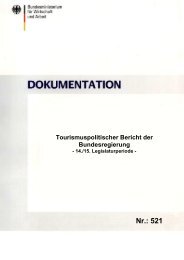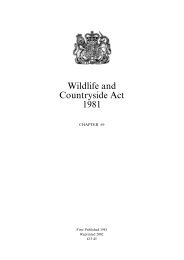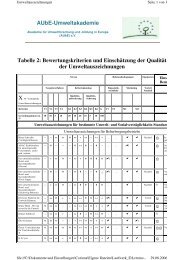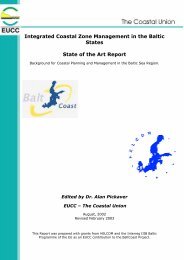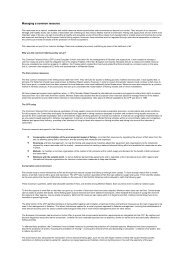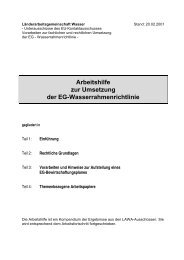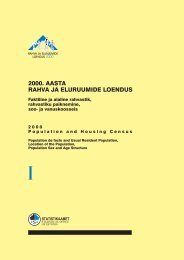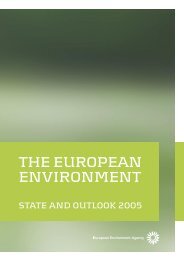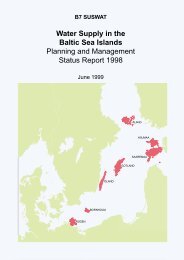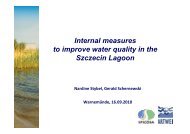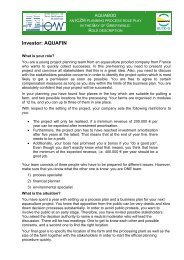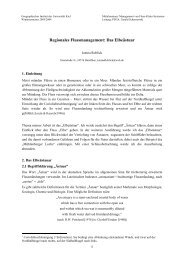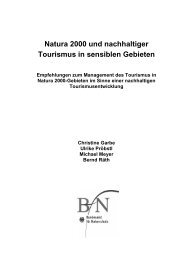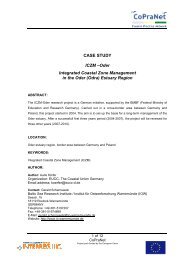View - IKZM-D Lernen
View - IKZM-D Lernen
View - IKZM-D Lernen
Create successful ePaper yourself
Turn your PDF publications into a flip-book with our unique Google optimized e-Paper software.
Haas & Peekna & Walker Folklore 23<br />
ern origin of the monster does not fit the appearance of the Kaali<br />
meteorite from the east, but it would make sense if the story originated<br />
from southern Estonia, where the observer would have seen<br />
a strange object streaking across the northern sky. An interesting<br />
detail is that this insatiable people- and animal-eating monster had<br />
metal scales. Since the Kaali meteorite left small granules of iron<br />
around some smaller craters, this could be still another echo of the<br />
ancient catastrophe in folk tales.<br />
Meri even suggests that the iron helped make Saaremaa an important<br />
center of smithing and trade. Tiirmaa reports, however, that<br />
meteoritic iron has a distinctively high nickel content, which has<br />
not been found in any of the iron objects from Saaremaa. The meteorite<br />
was mostly vaporized on impact. Even if some small pieces<br />
could be recovered from the smaller craters, their value for iron<br />
smelting would not have been realized in 2000 BC, well before the<br />
Iron Age, and the sites would have been overgrown with forest by<br />
the time Saaremaa’s inhabitants would have realized the value of<br />
the nuggets. It would thus also seem unlikely that the meteorite is<br />
the source of the concept of an “iron star”, in an Estonian folk song<br />
(Tedre III, 1971: 142), unless Veski’s dating of the crash to around<br />
600 B.C. turns out to be closer to the mark.<br />
HOT SNOW AND THUNDER ROCKS<br />
The aftermath of the meteorite’s crash would have included a shower<br />
of hot cinders and rocks on the island of Saaremaa. This may explain<br />
the curious contradictory phrase ‘hot snow’, which is found in<br />
Estonian folk poetry (Viidalepp 1959: 15; Laugaste 1963: 156).<br />
Ehk tuli tulista lunda<br />
ja sadas sula raheda,<br />
valas vihma varda’asta:<br />
ikka pean ma minema [---]<br />
(translation by A. Haas)<br />
Even though hot snow fell,<br />
and molten hail fell,<br />
rain poured in torrents,<br />
still I need to go[---]<br />
This is a serf’s lament about how he is obligated to go to work<br />
regardless of the conditions outside. It is possible that the original<br />
singer just hit upon the phrase ‘hot snow’ as an apt expression for<br />
showing how ridiculous or extreme the serf’s situation was, just as<br />
www.folklore.ee/folklore/vol23<br />
66



